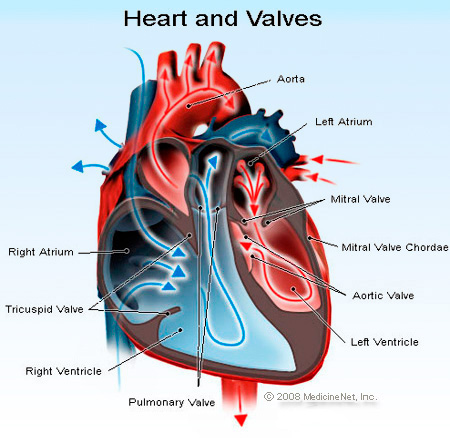
Heart failure is a serious long term disease which gradually becomes worse over time
There are actually four stages of heart disease (A, B, C and D) ranging from "very high risk" to "severe heart disease" and offer different treatment programs. This article looks at the fourth and last stage of heart disease, called "end stage".
At this point in the development of heart disease, the disease has progressed to the point where it has damaged the heart muscle, caused the walls of the heart chamber to rupture or collapse and damaged the heart valves. This damage to the heart tissue and the valves is known as heart valve disease and is known by four different types of symptoms.
If you are experiencing one of the symptoms of heart disease, then your heart is failing and you should seek immediate treatment. Most people can be treated for mild heart disease on their own with the use of medicines like amiodarone, neprolistone and cyclophosphamide.
If you have advanced heart disease or if your heart is not functioning properly then you should speak to your doctor immediately. Although they may take longer to diagnose, if you do suffer from any symptoms at all it is important that you tell your doctor right away so that appropriate treatment can be started immediately. Unfortunately many people find it difficult to admit that they have heart problems and that is why it is so important to talk to your doctor. He or she will be able to assess whether or not you are suffering from heart disease and what type of treatment is needed.
It is also important to make sure you understand all the treatment options that are available. There are a broad spectrum of treatments and each one has its own set of risks and side effects. Each type of treatment has its own strengths and weaknesses and can also have its own benefits and consequences.
It is important that you discuss your treatment options with your doctor. He or she will be able to advise you on the best course of action which will help you overcome your heart problem. You may want to look at ways in which you can avoid heart disease in the future by avoiding certain things. Smoking, eating well-balanced diets, drinking plenty of water, exercising regularly and sleeping well are just a few examples of good ways that you can do this.
If you are overweight, you should talk to your doctor about possible health problems. They may recommend that you try to lose weight and seeing how this improves your heart health and the overall health of your body. If you are obese or if you have diabetes then the doctor may recommend that you see your dietician. This will help you to devise a suitable weight loss plan and help you keep up a healthy lifestyle.
If you already have heart problems then your doctor may also advise you to change your lifestyle. For example, you may be advised to reduce your intake of alcohol and stop smoking, as these have been proven to be harmful to the heart. Other recommendations may also include stopping or reducing physical activity such as jogging, swimming, cycling and walking long distances etc. It is important to know that there are some simple exercises which can help you to improve your heart health and boost your energy levels and this should be looked at carefully when it comes to your treatment options.
You should also consider how you can protect yourself from heart attack
If you are a smoker you should make sure you have quit. If you already have a family history of heart disease then you should discuss this with them to avoid the chances of having a heart attack while you are young. If you have a pre-existing heart condition then you should be aware of how you can protect yourself by exercising, avoiding certain foods and drinking enough water.
You should be aware that regular exercise is also an effective way to protect yourself from heart failure. By doing brisk walking or even running three or more times per week you will be able to strengthen your heart muscles. You may also find that exercising on a treadmill or elliptical trainer at least 30 minutes a day will help you keep fit and build stamina. A good diet rich in fruit and vegetables, as well as fish and whole grains, are important as well.
Remember to follow your doctor's advice at all times if you think you may be suffering from heart failure. Your doctor will be able to give you further advice and treatment options if you are concerned that you are having a heart attack. You will also need to discuss all your treatment options with your family and be aware of what type of treatment they are using for their other illnesses as this could impact on your treatment.